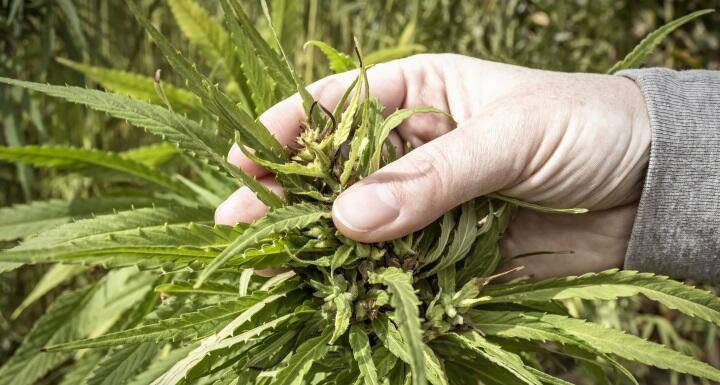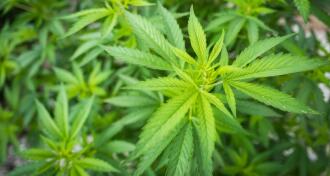While relatively new to North Carolina's farm economy, industrial hemp is gaining traction as a promising cash crop.
Interest and acceptance are growing among market participants, both inside and outside of our state. The North Carolina Industrial Hemp Commission ("Commission") continues to issue licenses to qualified applicants desiring to participate in the state's pilot program, the total acreage of hemp grown in North Carolina continues to increase, and additional farmers, growers, and processors continue to enter the market. Information released by the Commission indicates that, at the start of the 2018 crop year, there are more than 60 registered processors in our state.
Much of the discussion regarding industrial hemp in North Carolina tends to focus on excitement and curiosity generated by the plant itself. That "buzz" is well-deserved, as there is apparent potential for the North Carolina farming industry—especially smaller, less commercialized farming operations—to realize economic benefits that may offset the recent financial challenges the industry has faced. But, the potential for reward comes with risk.
Industrial Hemp Is Not Marijuana
"Industrial hemp" is a term of art created by the legislature. It encompasses all parts and varieties of the plant Cannabis sativa (L.), whether growing or not, that are cultivated or possessed by a Commission licensed grower and that contain a tetrahydrocannabinol (commonly known as "THC") concentration of not more than 0.3% on a dry weight basis. THC is the chemical compound in marijuana responsible for the euphoric high and medicinal benefits associated with the drug. Both marijuana and industrial hemp are derived from the Cannabis sativa (L.) plant—but, unlike marijuana, industrial hemp does not contain enough THC to get you "high" if ingested or smoked. Instead, the primary value of hemp is in its industrial and non-THC related health applications.
Industrial Hemp Is (Sort Of) Legal
Despite the differences between hemp and marijuana, the federal government still views and treats industrial hemp as an illegal substance in many instances. The Controlled Substances Act ("CSA"), a federal law that makes certain substances illegal to produce or possess, identifies all materials that contain "any quantity" of THC (including industrial hemp) as a Schedule I narcotic.
By contrast, North Carolina's pilot program allows industrial hemp to lawfully contain up to 0.3% THC concentration by dry weight. The CSA also broadly defines marijuana (called "marihuana" in the actual legislation) to include all parts of the plant Cannabis sativa L., whether growing or not, including the seeds (but excluding the mature stalks of the plant), and all resin extracted and products manufactured from, or using, the plant, its seeds, or its resins (but excluding fibers, oils, and other products produced from the mature stalks of the plant).
Passed by Congress in 2014, Section 7606 of the federal Agricultural Act of 2014 ("Farm Bill") legalized the "growing and cultivating" of industrial hemp for research purposes in states (like North Carolina) where that growth and cultivation is legal under state law. In 2015, North Carolina enacted its industrial hemp authorization law which, among other things, created the Commission and decriminalized the production, possession, and use of industrial hemp if certain rules are followed. These statutes only created a narrow exception to the CSA and other laws that classify industrial hemp as illegal, and not all industrial hemp-related activities are lawful.
Industrial hemp-related activities falling outside the scope of the "growing and cultivation" exception of the Farm Bill are not afforded protections under the Farm Bill or North Carolina law, and those activities remain subject to prosecution. For example, the flowers of the industrial hemp plant are commonly used to produce oils that are rich in concentration of cannabidiol ("CBD"). Because those oils are derived from the cannabis flower, they may be viewed by the federal government as a derivative of marijuana and an illegal Schedule I controlled substance under the CSA. The actual act of manufacturing and producing those oils may also give rise to violations of the Federal Food, Drug, and Cosmetic Act ("FDCA") and other laws.
Other Challenges for Hemp
There are other questions and challenges facing growers and processors of industrial hemp. Most of those issues, again, stem from uncertainty in the law. While not a comprehensive list, growers and processors of industrial hemp should be fully aware of the issues below:
- Weather events such as hurricanes and droughts, and other Acts of God commonly affect farmers' ability to successfully cultivate and harvest their crops. Industrial hemp faces the same weather-related risks as other row crops. Certain government-administered farm programs and protections, like crop insurance and farm loans, are available for most crops, but not for industrial hemp, so weather-related risks cannot be minimized through insurance or other governmental payment programs
- Credit and banking services may not be available for industrial hemp growers and processors, including financing in the form of bank loans, operating lines, and other credit traditionally relied upon by farmers to fund their row crop operations. Banks and other lenders may be reluctant (or, in some cases, prohibited) from providing services or loans to growers and processors for fear of prosecution under federal law. Those that do work with industry participants may be required to make disclosures and submit reports to banking regulators to remain in compliance with banking laws.
- Industrial hemp growers and processors facing financial difficulty may not be eligible for the protections and relief afforded by the United States Bankruptcy Code. The Bankruptcy Courts have generally been reluctant (and some have outright refused) to provide relief in cases involving cannabis-related business operations due to its illegality under federal law. However, the prior cases addressing cannabis-related issues have dealt with marijuana operations and proceeds derived therefrom. It's unclear how the Bankruptcy Courts will react if the debtors before them are properly licensed, legally compliant, industrial hemp growers or processors.
- The law surrounding cannabis—and specifically, industrial hemp—is not settled. Legislation could, conceivably, be passed to limit, impede, or kill the industrial hemp pilot program in North Carolina (or in other states that have authorized similar programs). But, it seems that the present legislative momentum favors deregulation and expansion of rights related to industrial hemp. For example, United States Senator Mitch McConnell (R-KY) recently introduced the Hemp Farm Act of 2018 in an effort to address the challenges outlined above by completely removing industrial hemp from the CSA. It remains to be seen if that bill will become law, but there appears to be growing support across both aisles of Congress to address hemp's uncertain status.
Risk Gives Rise to Reward
Hemp farming, overall, is still in its early stages in North Carolina. But despite the uncertainties, growers and processors appear to believe that they will obtain advantages and opportunities through early entry to the market. Those who join this highly regulated industry should do so fully informed of the risks they are taking. Not all risks can be avoided, but some can be minimized or shifted through prudent planning and properly documenting your business relationships.
We encourage anyone considering hemp cultivation, processing, or distribution to seek legal counsel before investing significant time and money. Ward and Smith's Agribusiness Practice and Government Relations teams can advise you as you work through these and other difficult legal issues.









